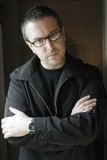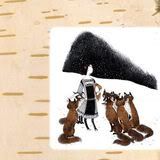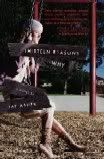The Weekly Shelf Talker: The Klondike Fever
The Weekly Shelf Talker is our Friday column, in which a Vroman's employee recommends a great book, new or old, fiction or not, for you to enjoy. This week's Shelf Talker is from Anne Edkins, who recommends The Klondike Fever:
 A few years ago, my husband and I took an Alaskan cruise, lured to the Great White North by tales of the 1898 gold rush. But when we disembarked in Skagway, one of the two gateways to the Klondike gold fields, we were dismayed to see virtually all of our fellow passengers head straight to the discount tourist traps that line the wharf. Where was the rush to Soapy Smith’s Parlor? Or the cabin of Capt. William Moore, the luckless founder of the town? Everyone seemed determined to get a bargain; only the two of us, out of hundreds and hundreds of passengers, seemed interested in the area’s history. At least we didn’t have to wait in any lines.
A few years ago, my husband and I took an Alaskan cruise, lured to the Great White North by tales of the 1898 gold rush. But when we disembarked in Skagway, one of the two gateways to the Klondike gold fields, we were dismayed to see virtually all of our fellow passengers head straight to the discount tourist traps that line the wharf. Where was the rush to Soapy Smith’s Parlor? Or the cabin of Capt. William Moore, the luckless founder of the town? Everyone seemed determined to get a bargain; only the two of us, out of hundreds and hundreds of passengers, seemed interested in the area’s history. At least we didn’t have to wait in any lines.The Alaskan gold rush parallels California’s in some ways: the discovery of gold in a remote, nearly unpopulated area, followed by a frenzied stampede by prospectors (most completely unprepared for the experience) from all over the world. But the Alaskan gold rush was in many ways unique: the Dead Horse Trail, the famed “Golden Staircase” of the Chilkoot Pass, the 500-mile boat trip in homemade crafts down the rapids towards the gold fields, and the stranglehold of Jefferson “Soapy” Smith over Skagway were unlike anything the California gold rush had to offer. Pierre Berton’s masterful book, The Klondike Fever: The Life and Death of the Last Great Gold Rush, is a fascinating and always entertaining history of that brief frenzy, chock full of anecdotes about this mostly unknown – and certainly underappreciated – bit of North American history. First published in 1958, it remains the definitive account of this singular event.
Berton, who died in 2004, was a Canadian journalist whose parents met in the decaying boom town of Dawson City not long after the gold rush had petered out. He grew up with tales of prospectors and schemers and fortunes found and lost. Hundreds of stories crowd the pages of The Klondike Fever, such as this account of the mania the mere word “Klondike” inspired during the early days of gold fever:
Almost anything was salable if it had the name “Klondike” attached to it. Optometrists sold Klondike glasses, rubber manufacturers hawked Klondike boots, drugstores peddled Klondike medicine chests, restaurants dispensed Klondike soup; everything from stoves to blankets suddenly bore the necromantic name. It had become a magic word, a synonym for sudden and glorious wealth, a universal panacea, a sort of voodoo incantation which, whispered, shouted, chanted, or sung, worked its own subtle witchery. The papers talked of “Klondicitis,” and the phrase was apt. A New York printer named William Miller, suffering from Klondicitis in the first week of the stampede, tried to raise five hundred dollars from his friends to make the trip north. When he failed to get enough money he lost his reason and the police had to be called to prevent mayhem.The Klondike Fever covers everything from Alaska’s early days, when the odd prospector might have a bit of luck panning in an inland river, though the gold rush’s meteoric rise and fall. All of the gold rush’s colorful characters, from enterprising businessmen to con artists to gamblers to the inevitable “working girls,” populate tales that are, by turns, amusing, infuriating, and heartbreaking. Throughout, Berton manages to convey both the excitement and the weirdness of the stampede, such as the fact that nearly all the men who made the sea journey to Alaska, hiked over the mountains carrying the required ton of supplies, spent a winter building a river-worthy craft, and then sailed 500 miles down the Yukon River to Dawson City, the jumping-off spot to the gold fields, never made it past that point, as if getting to the mouth of the gold fields, rather than the gold itself, had been the whole point of the journey. The Klondike Fever is a superb account of that last great opportunity for humanity to dream big and seek adventure in an unknown land.
Anne Edkins, Vroman's Visual Merchandising Manager, has worked off and on (mostly on) for Vroman's since 1985. Her many areas of reading interest include fiction, US history, and the occasional biography.









